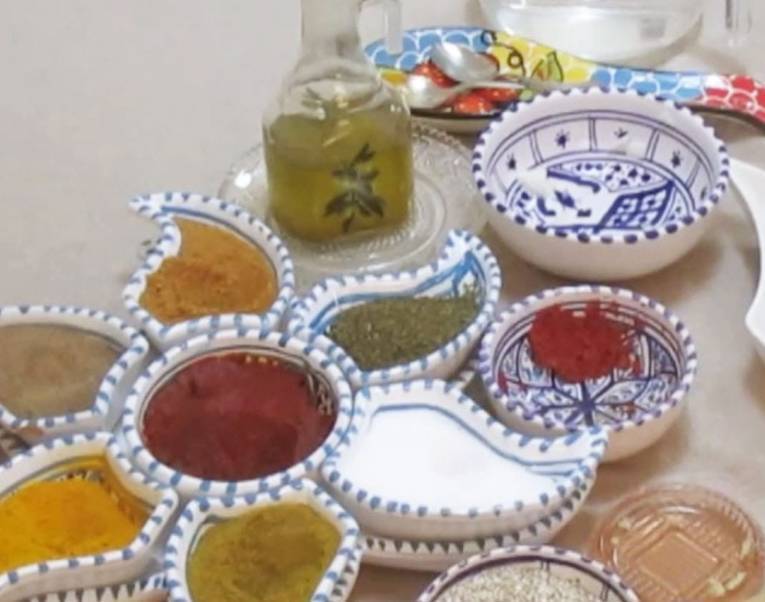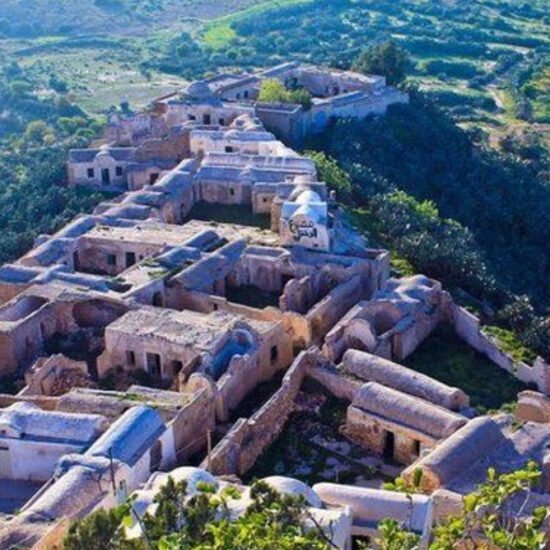
Traditional Tunisian Cooking Class in Tunis
Traditional Tunisian Cooking Class in Tunis
Have you ever wondered how it feels like being part of a cooking class where aprons come with laughter and harissa comes with a warning?
If you think a cooking class in Tunis is just about recipes, pots, and pans—think again. It starts in a souk. That’s right. No fancy supermarkets. Instead, your local guide-slash-chef-slash-storyteller will whisk you through the Medina’s winding alleys like a North African version of Gordon Ramsay meets Indiana Jones.
There’s shouting. There’s bargaining and There’s a man trying to sell you 17 kinds of olives you didn’t know existed, and There’s a grandma elbowing her way to the best tomatoes like it’s the final round of a culinary MMA fight. And guess what? She might be your instructor.
Welcome to the Kitchen, AKA The Flavor Arena
Back in a charming courtyard home that looks like something out of a movie set (minus the camera crew), the cooking class officially begins. Picture bright blue doors, colorful tile work, and a cat named Couscous who doesn’t really belong to anyone but somehow supervises everything.
Aprons are handed out, but not before some very serious harissa warnings. (Spoiler alert: That red paste? It’s fire in a jar. Apply responsibly.) Your instructor—possibly named Fatma or Habib—has probably been cooking longer than you’ve been alive. And they’re not here to measure stuff. No, no. In Tunisian kitchens, recipes are passed down via instinct, taste, and frequent “Just a little more olive oil.”
Couscous Isn’t Just Food—It’s a Lifestyle
Ever seen someone steam couscous three times while telling a story about their cousin’s wedding? You will now. Because couscous in Tunisia isn’t just a side dish—it’s a sacred ritual, a national treasure, and a test of patience for all foreigners used to instant anything.
And don’t forget the brik—that crispy, deep-fried, egg-filled triangle that defies physics and probably should be illegal in 10 countries. Making it involves folding paper-thin dough while simultaneously not breaking the yolk and not looking like a complete amateur. Good luck with that.
Laughter, Spices, and a Little Bit of Chaos
Things will get messy. Someone will accidentally spill cumin. Someone else will mistake salt for sugar. (It’s always Tim from Canada. Tim means well.) But the kitchen turns into a theater of chaotic joy—people laughing, onions sizzling, mint tea brewing. And yes, someone will absolutely set off the smoke alarm.
Then, like magic, a feast appears. Lamb so tender it whispers, couscous that tastes like sunshine, and that perfect brik that somehow didn’t explode in the oil. You all sit down like long-lost friends around a shared table, passing bread and high-fiving over salads.
Final Lesson: Never Underestimate Tunisian Hospitality
By the end of the class, you’ve eaten too much, taken 93 blurry photos, and somehow agreed to come back next year. Your apron is stained, your fingers smell like coriander, and you’ve got harissa in your soul.
Because a traditional Tunisian cooking class in Tunis? It’s not just about food. It’s about flavor, fire, friendship—and maybe learning how to out-cook Tim next time.




